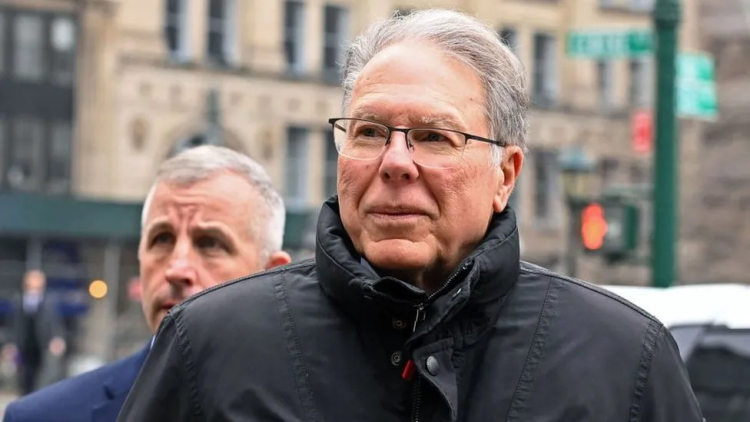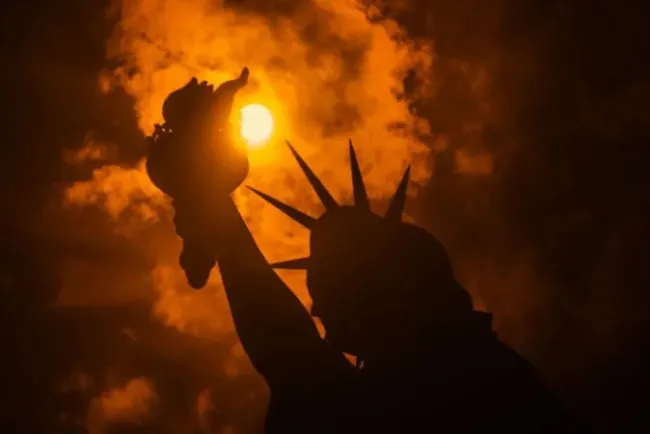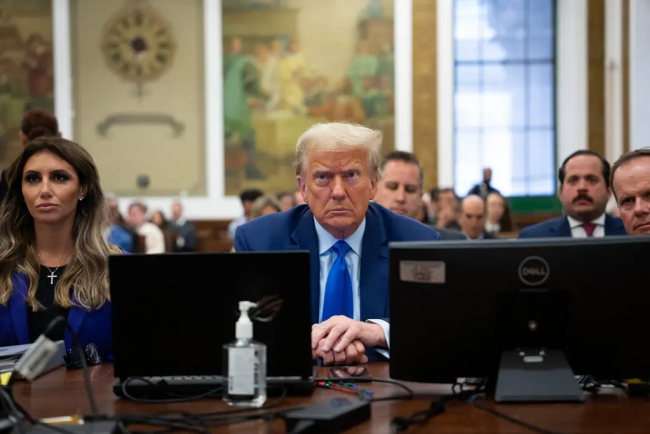NRA Executives Repay $6.35M in Civil Corruption Trial Verdict
NRA and Executives Ordered to Repay $6.35M in Civil Corruption Trial Verdict

-
Introduction
- Overview of the civil corruption trial's outcome
- The significance of the trial for the NRA and its top executives
-
Background of the Case
- The role of the NRA in American society
- Overview of allegations by New York Attorney General Letitia James
-
The Trial and Verdict
- Details of the accusations against Wayne LaPierre and other executives
- The jury's findings and financial repercussions for the involved parties
-
Wayne LaPierre's Role and Actions
- Analysis of LaPierre's tenure and spending habits
- The specific expenditures called into question
-
The Implications for the NRA
- The NRA's response to the verdict
- Changes in policies and accounting controls within the NRA
-
Reaction from the New York Attorney General
- Letitia James' statement and the legal battle leading up to the trial
-
The Defense's Perspective
- The defense's arguments and portrayal of the lawsuit as politically motivated
-
The Role of the Charities Bureau
- The bureau's responsibility and its potential actions following the trial
-
Public and Political Reaction
- The public and political implications of the trial's outcome
-
The Future of the NRA
- Prospects and challenges facing the NRA post-trial
-
Legal and Financial Ramifications
- Analysis of the financial implications for LaPierre and other defendants
-
Ethical Considerations
- The ethical questions raised by the trial and its findings
-
The Role of Non-Profit Organizations in Politics
- Examination of how non-profits like the NRA influence politics
-
The Impact on Gun Rights Advocacy
- How the trial's outcome could affect the broader gun rights movement
-
Lessons Learned
- What other organizations can learn from the NRA's legal battles
-
Conclusion
- Summarizing the trial's impact on the NRA and its future
-
FAQs
- Addressing common questions about the trial and its significance
-
Additional Resources
- Links to further readings and analyses on the topic
The NRA's Legal Battle: A Turning Point for the Organization
SEO Meta Description: Discover the pivotal civil corruption trial that led the NRA and its executives to face significant financial repercussions. Learn how this landmark case could redefine the future of gun rights advocacy in the USA.
Introduction
In a landmark decision that sent shockwaves through the corridors of power, the National Rifle Association (NRA) along with two of its top executives, were found liable in a civil corruption trial, marking a defining moment in the organization's storied history. Ordered to repay a staggering $6.35 million, this verdict brings to light the intricate web of lavish spending and financial misconduct at the heart of America's most formidable gun rights advocacy group. Visit kiksee.com for a deeper exploration of the case and its far-reaching implications.
Background of the Case
At its core, the NRA has always epitomized the spirited defense of the Second Amendment. However, beneath the veneer of advocacy lies a tumultuous saga of alleged financial mismanagement. Spearheaded by New York Attorney General Letitia James, the state's legal machinery accused the organization and its erstwhile leader, Wayne LaPierre, of egregious violations of state laws, setting the stage for a high-stakes legal showdown.
The Trial and Verdict
The jury's deliberation culminated in a resolute verdict against Wayne LaPierre, pinpointing him as the architect of financial imprudence that siphoned millions from the NRA's coffers. With a detailed breakdown of the misallocated funds, the trial paints a vivid picture of unchecked extravagance and fiduciary neglect.
Wayne LaPierre's Role and Actions
LaPierre's tenure at the NRA's helm is now overshadowed by revelations of personal luxury financed by the organization's funds. From private jet escapades to the Bahamas to lavish gifts and personal expenses, the litany of questionable expenditures raises critical questions about governance and accountability within the NRA.
The Implications for the NRA
In response to the verdict, the NRA sought to frame itself as a victim of exploitation by former insiders. The organization's statement, emphasizing its exoneration from financial penalties and the retention of John Frazer, underscores its attempt to navigate the aftermath of the trial while signaling reforms in its operational blueprint. For an in-depth analysis, click here.
Reaction from the New York Attorney General
Letitia James' pursuit of accountability culminates in a poignant victory, with the trial's outcome affirming her stance on the "rampant corruption" within the NRA. This legal milestone underscores a rigorous commitment to upholding the sanctity of non-profit governance and financial integrity.
The Defense's Perspective
Faced with damning accusations, the defense mounted a narrative of political witch-hunting, attributing the legal scrutiny to partisan motivations. This defense strategy, while controversial, highlights the polarized backdrop against which the NRA's legal drama unfolds.
The Role of the Charities Bureau
The New York Attorney General's Charities Bureau emerges as a critical watchdog in the saga, its oversight mandate now pivotal in enforcing compliance and ensuring the NRA's adherence to its charitable mission post-verdict.
Public and Political Reaction
The verdict has ignited a flurry of public and political discourse, with stakeholders across the spectrum weighing in on the implications for gun rights advocacy and non-profit accountability in America. For further insights, explore kiksee.com.
The Future of the NRA
As the NRA grapples with the fallout of the trial, questions loom about its path forward. Can the organization recalibrate its mission and restore trust, or will it remain ensnared in legal and ethical quandaries? The answers may well define the trajectory of gun rights advocacy in the United States.
Conclusion
The civil corruption trial against the NRA and its executives marks a watershed moment, not just for the organization but for the broader landscape of non-profit governance and political advocacy. As the NRA charts its course through turbulent waters, the verdict serves as a stark reminder of the imperatives of accountability and ethical stewardship in the stewardship of public trust.
Summary: The National Rifle Association (NRA) and two of its top executives have been held accountable in a landmark civil corruption trial, with a New York jury mandating a repayment of $6.35 million due to financial mismanagement and lavish spending. This ruling marks a significant moment for the NRA, highlighting issues of internal governance and the legal challenges facing one of the most influential political organizations in the United States. This article delves into the trial's background, the accusations leveled by New York Attorney General Letitia James, the defense's arguments, and the broader implications for the NRA and its leadership.
FAQs
How does the verdict affect the NRA's future operations? What were the specific allegations against Wayne LaPierre? How did the NRA respond to the trial's outcome? What does this case say about non-profit governance? Can the NRA recover from this financial and reputational hit? What implications does this trial have for gun rights advocacy in the US?
What's Your Reaction?






















